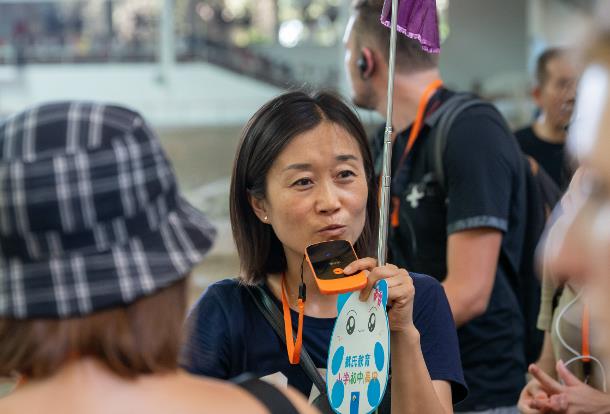As travel restrictions were eased during the summer vacation, the recovery of China’s domestic hotel industry has accelerated.
As of August 24, the total number of reserved room nights matched the pre-Covid level. At the end of the summer vacation month, the number even exceeded that of January, according to Shiji Distribution Solutions, a hotel distribution switch and channel manager in China.
The recovery showed that pent-up demand was apparent and travelers displayed robust consumption capacity. The demand for outbound travel has been diverted to domestic travel.
Holiday demand was an obvious growth driver. Two significant turning points were visible in the course of the recovery.
The first was the Labor Day holiday in May, when the number of reserved room nights surged. The number of domestic travelers totaled 115 million during the five-day holiday, up by 167% from 43.25 million on the Tomb Sweeping Day. With travel restrictions imposed on Wuhan lifted on April 8, travelers' confidence was further strengthened. Shiji Distribution Solutions expected that the hotel industry would see another round of rapid growth during the upcoming National Day holiday in October.
The second turning point was after the Dragon Boat Festival on June 25, when the number of room nights increased faster. By July, travelers’ demand was further released to shape a new growth curve before the summer vacation.
The rapid growth of travel demand was also stimulated by the industry’s proactive measures and the governments’ open policies in response to the COVID-19 impacts. Hotel bookings bottomed out in mid-February, but have been ramping up since then. The hospitality industry mounted self-rescue efforts, notably with James Liang, founder of Trip.com Group, making his livestream debut on March 23. Travel demand showed signs of an upswing by end March and then surged during the Labor Day holiday.
China’s State Council relaxed restrictions to allow essential conferences and exhibitions in May, and inter-provincial group tours in July. The moves further boosted demand for business travel and events and accelerated the recovery of the industry.
People made reservations with shorter booking windows, as a bigger proportion of hotel bookings were made less than eight days in advance.
Consumers were still very cautious about travel and tended to opt for last-minute bookings. Some 90% of the bookings in March to May were made last-minute, compared to 72% in January and February, and over 85% in June to August.
From June to August, a significantly larger number of room nights were booked 8 to 30 days in advance, accounting for 10%-12% of the total.
In comparison, the number of room nights booked more than 30 days in advance dropped sharply in July and August, accounting for only 2.5% in July and 3.3% in August.




